Original Author: Alex Liu, Foresight News
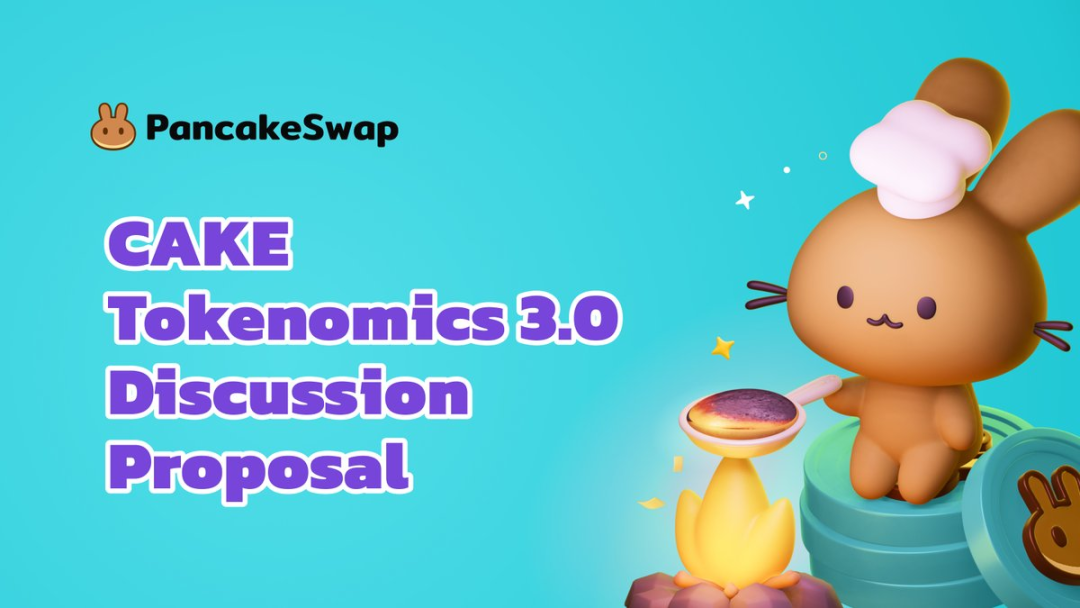
On April 8, PancakeSwap announced its CAKE Token Economics 3.0 proposal on X, aiming to comprehensively restructure the issuance, inflation mechanism, and governance model of the CAKE token.
Since its release, the proposal has sparked widespread attention and intense discussion within the market and community. The development of the event is filled with complexity and drama, from the background of the proposal, specific content, to the impact on various stakeholders, and the core points of contention along with diverse community perspectives.
Background and Consequences
On March 19, an industry insider stated on X that the current veCAKE locking mechanism design of PancakeSwap's CAKE token is overly complex, which not only raises the participation threshold for users but also disrupts the balance between long-term governance rights and short-term incentives. Binance co-founder Zhao Changpeng agreed with the viewpoint in a comment on X, stating, "PancakeSwap should adopt a buyback and burn model instead of the ve-token model," and added, "Many 'models' are too convoluted; burning is the most straightforward." He also tagged the official PancakeSwap account.
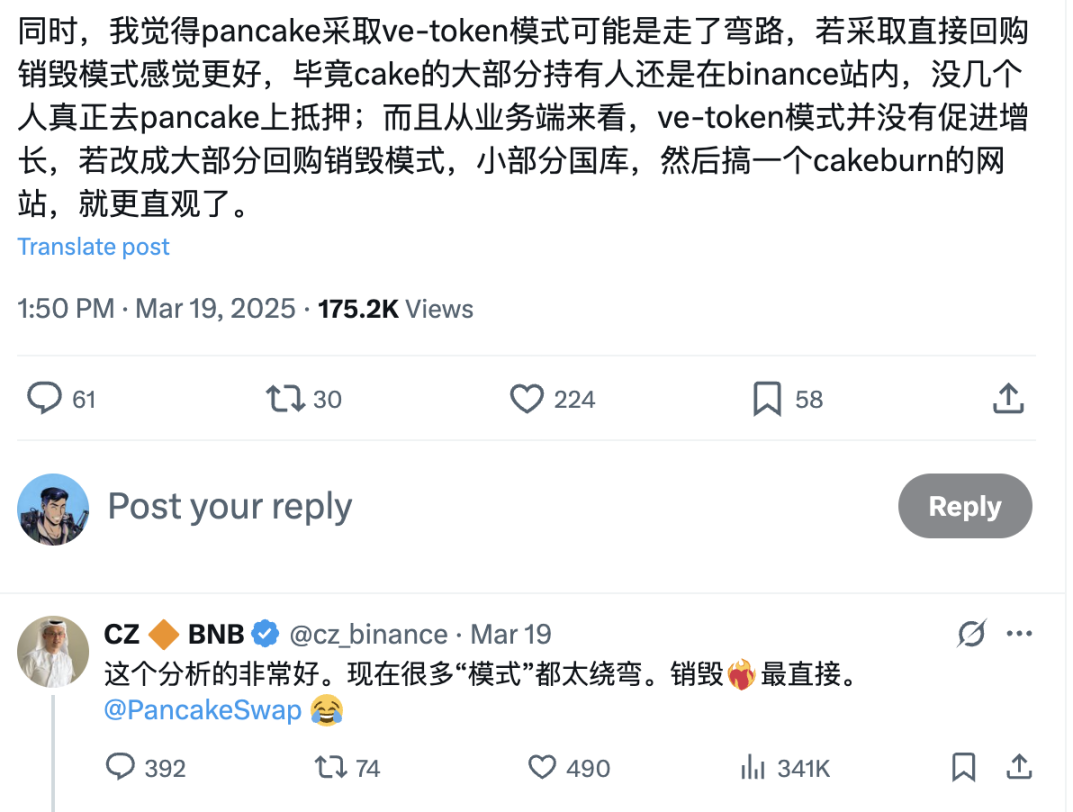
With a "mandate," PancakeSwap proposed a new token economics proposal to replace the long-standing ve model in less than 20 days.
Specific Content of the Proposal
The Token Economics 3.0 proposal mainly includes the following core aspects:
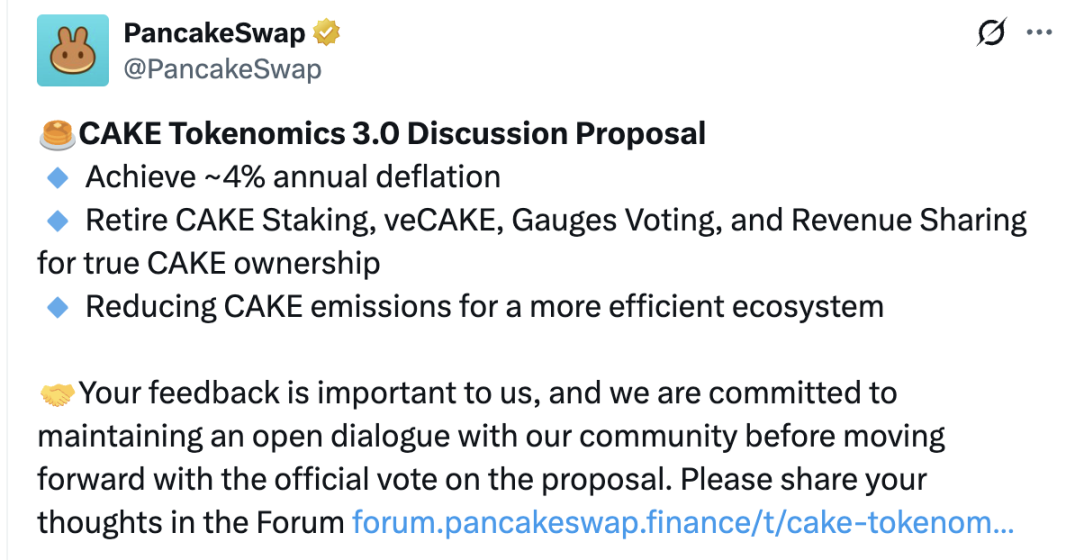
First, the proposal suggests achieving an annual deflation target of about 4%, with the total supply of CAKE expected to decrease by 20% by 2030. To this end, PancakeSwap plans to adjust the daily emission from approximately 40,000 CAKE to 22,500 CAKE. This adjustment aims to enhance the scarcity and long-term value of CAKE by reducing the supply of new tokens.
Second, the proposal explicitly states the cancellation of the existing CAKE staking, veCAKE, weighted voting (Gauges Voting), and profit-sharing mechanisms. The intention behind this move is to "simplify" the governance process, allowing CAKE tokens to truly belong to the holders and avoiding the marginalization of some users due to multiple lock-ups and complex distribution mechanisms. Supporters believe this can lower governance costs and improve the overall transparency and operational efficiency of the system.
At the same time, to compensate for the potential incentive gaps caused by the adjustments, the proposal also plans to introduce a new buyback and burn mechanism. By regularly using a portion of transaction fees and other revenues to buy back and burn CAKE, it aims to further achieve deflationary effects, thus providing long-term support for the token price.
Impact on Major Stakeholders
For some core participants and long-term supporters within the ecosystem, this proposal is undoubtedly devastating. Particularly for Cakepie, the main beneficiary of the veCAKE mechanism, which has locked over ten million CAKE in the past few years and gained stable governance rights and dividend income through this mechanism. If the proposal passes, Cakepie DAO may face the following impacts:
The cancellation of the veCAKE and related profit-sharing mechanisms means that the governance model built by Cakepie DAO over the long term will be disrupted, and its core asset CKP, which relies on the dividends and governance income from this mechanism, will lose value. (The relationship between CKP and CAKE is similar to that between PNP and PENDLE; recommended reading: Revisiting the Penpie Protocol Mechanism, the Impact of Theft Should Not Be Overstated)
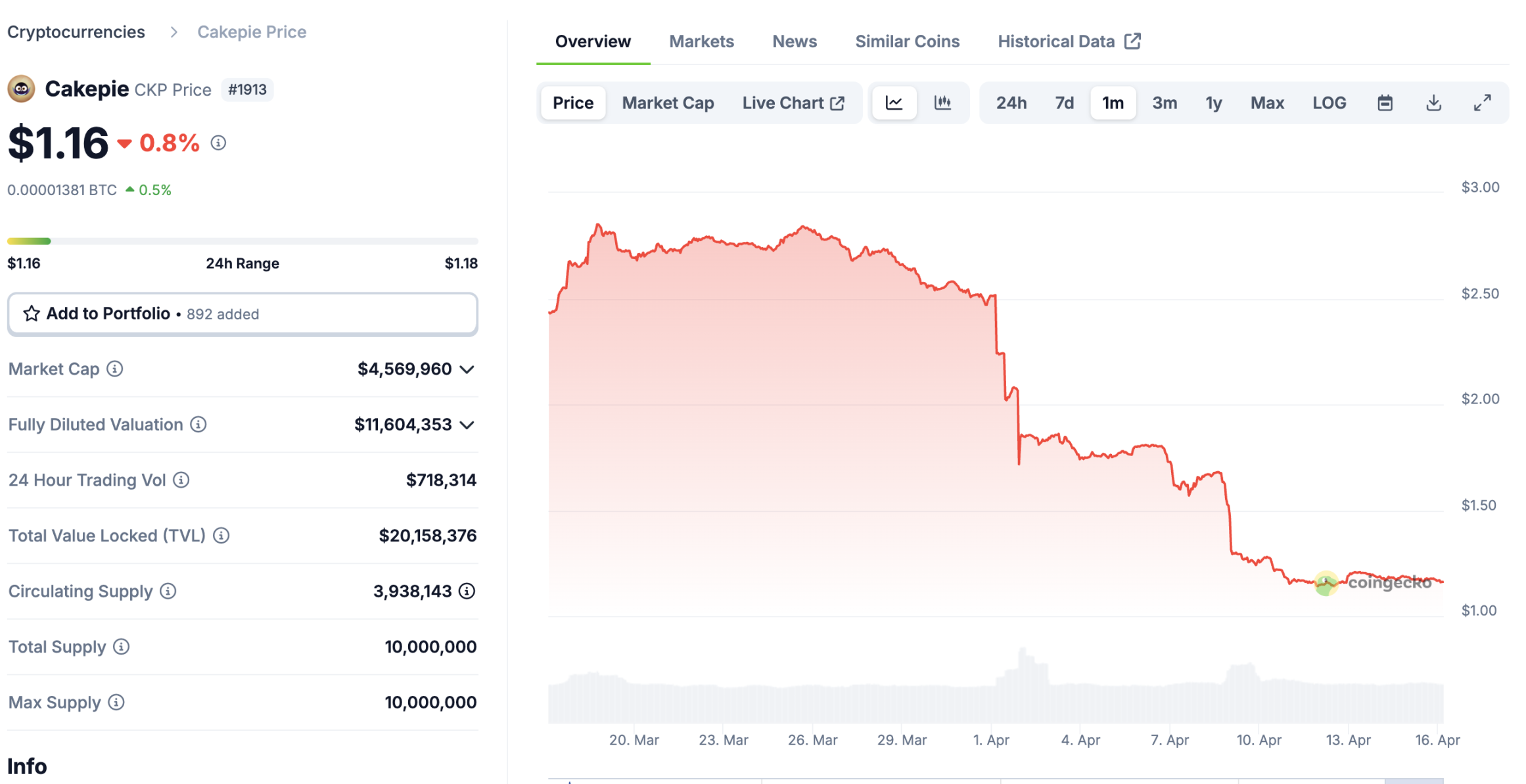
After PancakeSwap proposed the proposal, the value of CKP tokens plummeted significantly.
Core Controversy of On-Chain Operations
The controversy surrounding the proposal is not only reflected in the adjustment of the economic model but also in the anomalies that occurred during the on-chain operations and governance process. According to multiple on-chain data monitoring sources, several large addresses associated with Binance or PancakeSwap suddenly locked a large amount of CAKE tokens (25 million, accounting for nearly 50% of the total CAKE locked) before and after the formal discussion of the proposal. These addresses can immediately unlock after the proposal ends, allowing them to quickly regain governance rights and reconfigure incentive mechanisms through low-cost operations.
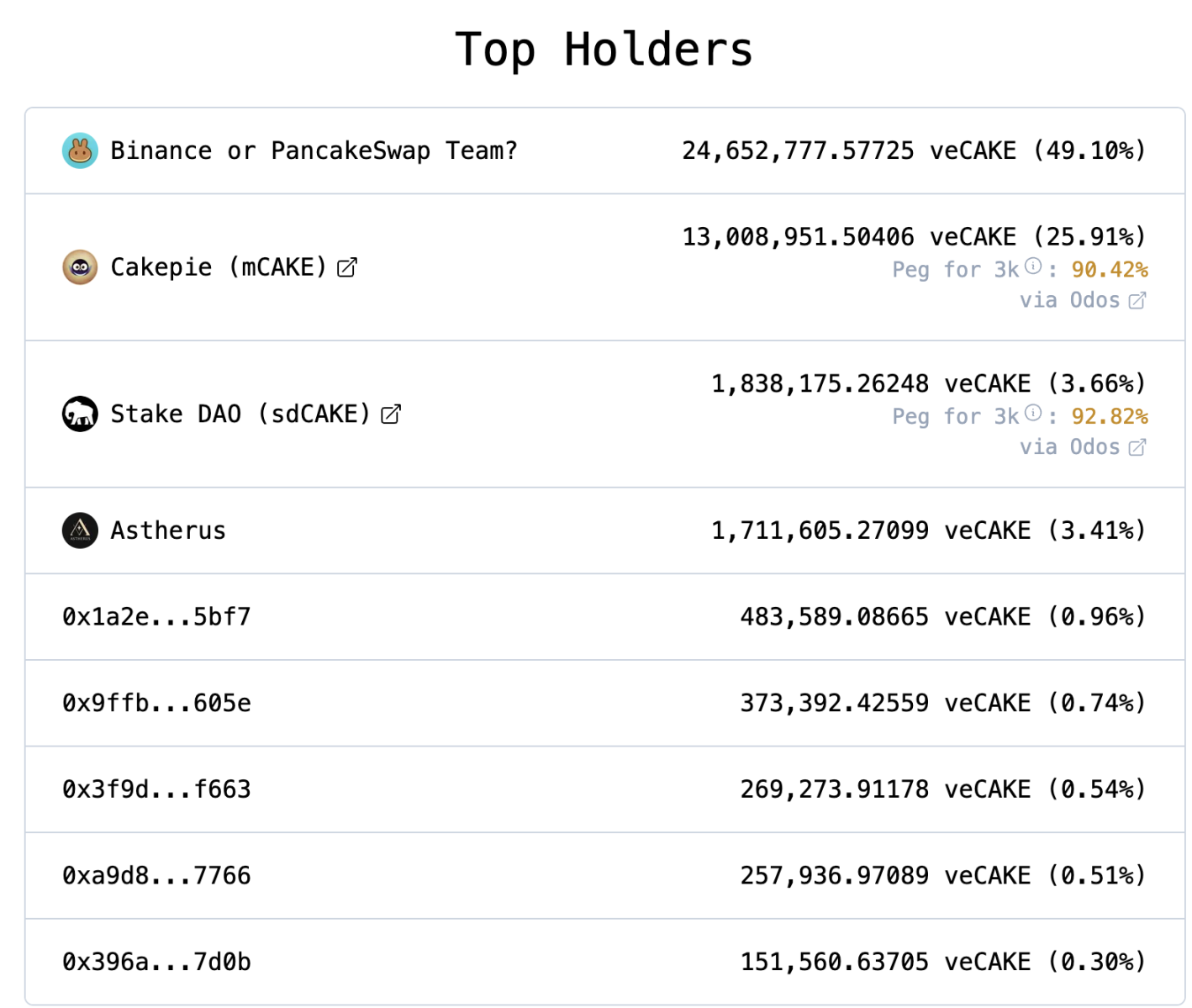
This "vote and exit" operational model has raised widespread skepticism within the community. Critics argue that this phenomenon will make the governance process unfair, as a few whales and centralized addresses can manipulate the direction of the entire proposal through short-term actions, harming the interests of the majority of retail investors. Meanwhile, some pointed out that such operational behaviors are a microcosm of the frequent "on-chain coups" currently occurring in the crypto market, highlighting the vulnerabilities and risks of decentralized governance in practical operations.
Divergent Community Perspectives and Authoritative Voices
In the heated discussions triggered by this proposal, voices from different groups vary. Cakepie DAO launched a strong protest on social media, accusing this reform of "betraying the original intention of long-term incentives and ecological co-construction," and proposed alternative solutions that include partial adjustments rather than a complete cancellation of veCAKE. This DAO believes that the governance rights and profit-sharing mechanisms formed by long-term lock-ups are key to driving the continuous development of PancakeSwap. Once canceled, the losses will not only be reflected in economic benefits but will also deal a fatal blow to the trust foundation of the entire ecosystem.
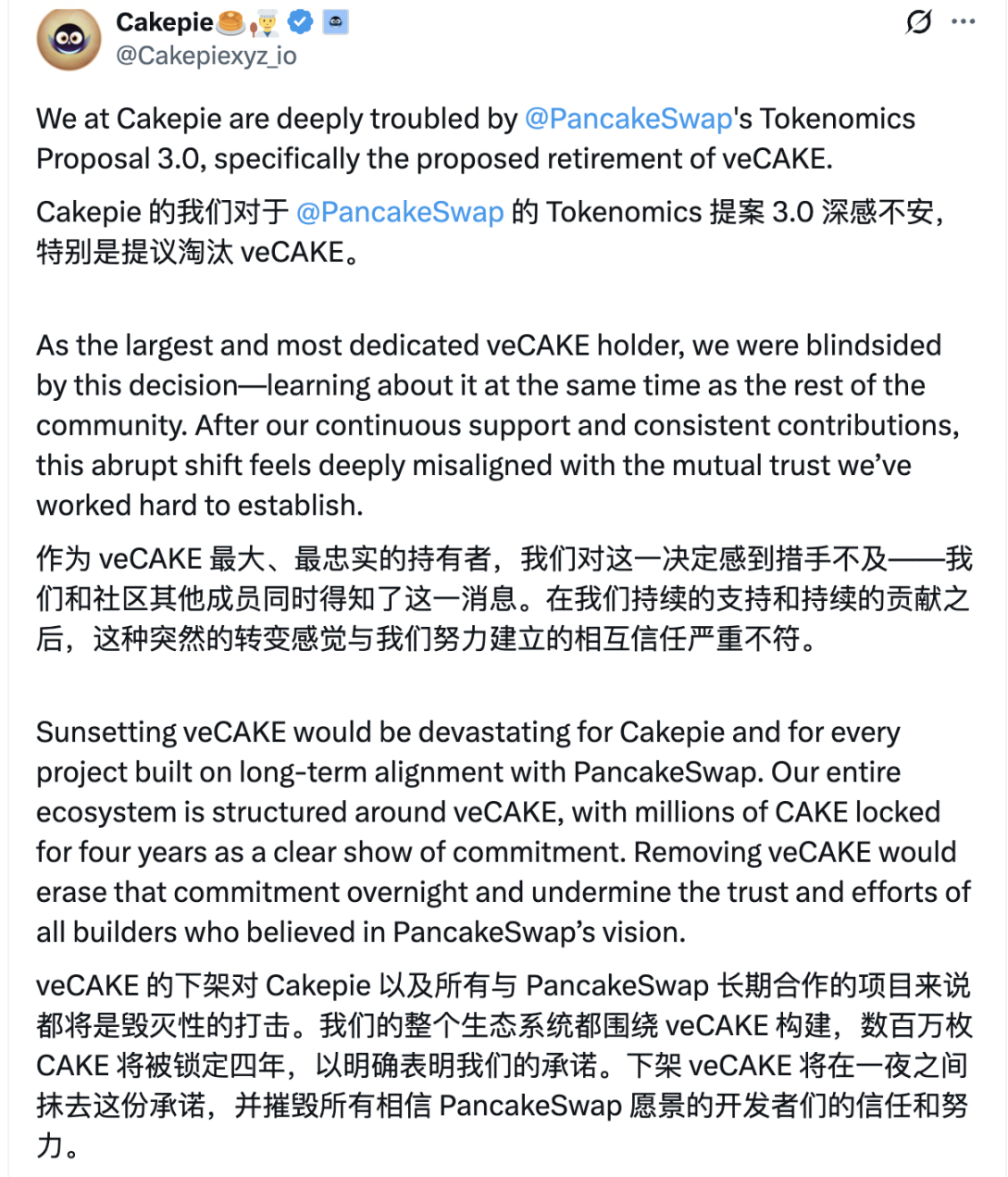
At the same time, some industry experts have also expressed differing views on the proposal. For instance, the founder of Curve stated that while decentralized governance needs continuous optimization, the interests and incentive structures of early contributors should be fully respected. Simply canceling mature mechanisms poses significant risks and may lead to the collapse of the long-term value system within the ecosystem. He referred to this proposal as a "governance attack" and suggested that veGovernance contracts should not be upgradeable.
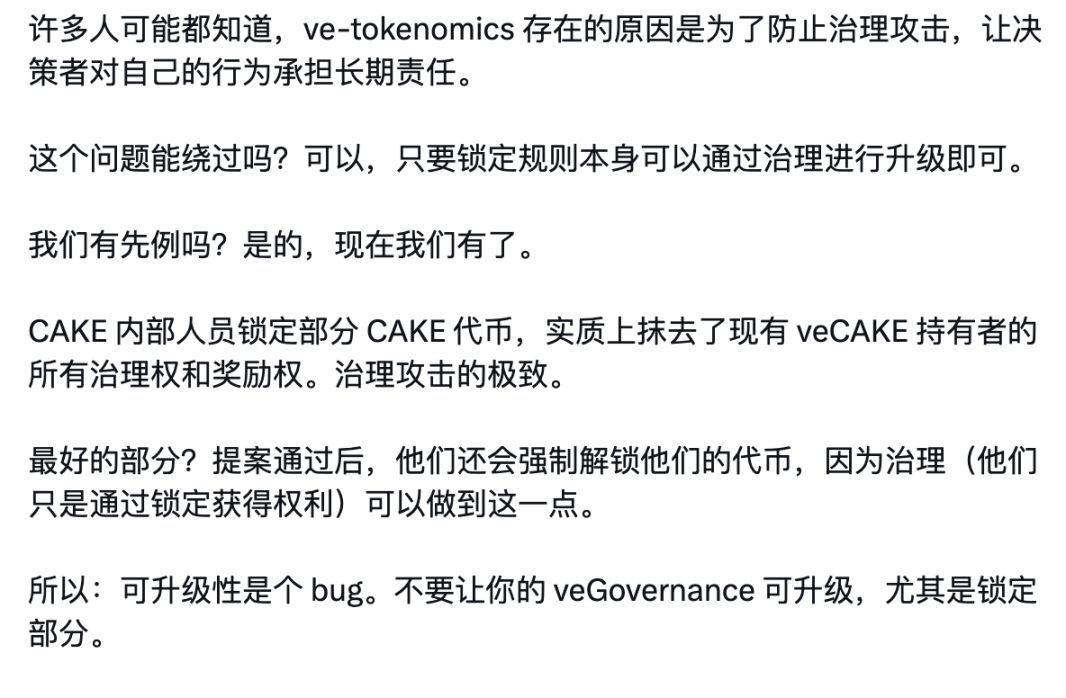
Event Progress and Subsequent Developments
On April 16, PancakeSwap official members revealed that they are in close communication with Cakepie DAO and are willing to provide $1.5 million in compensation to CKP holders, a post that received applause from Zhao Changpeng. However, even after the crash, CKP still has a fully diluted valuation (FDV) exceeding $10 million, and a circulating market value of $4 million, which is higher than the $1.5 million compensation amount.
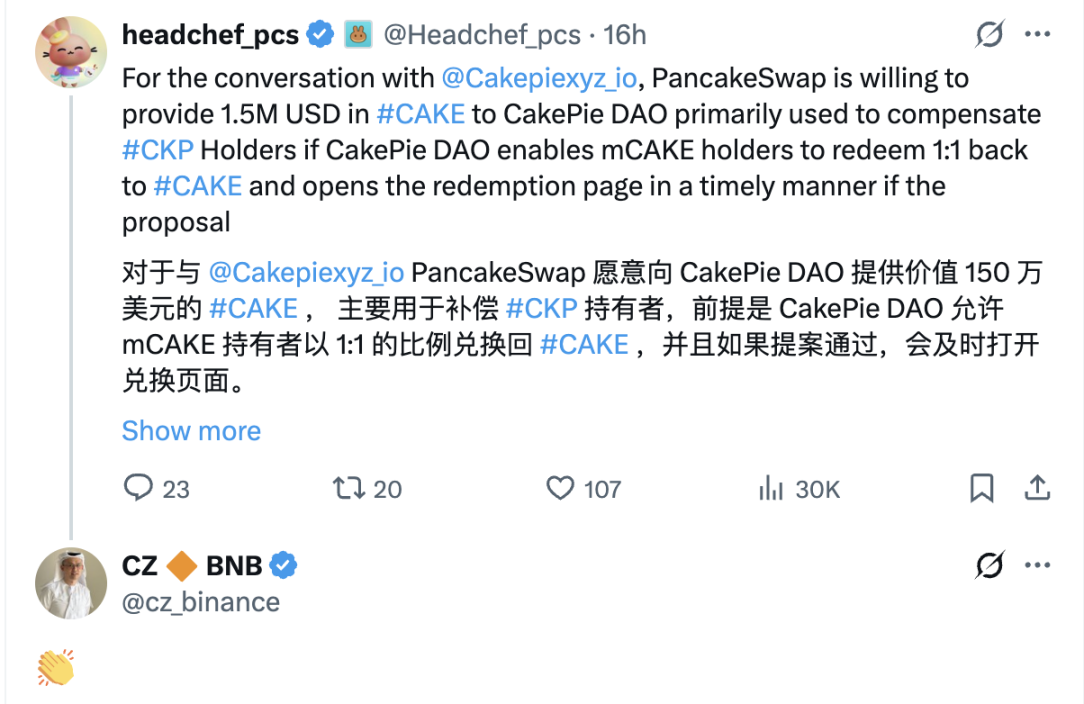
Currently, the proposal voting has officially gone live, with supporters holding over 70% of the votes in favor. Even if Cakepie DAO and retail investors do not support the proposal, it seems they cannot compete with the "whales" who hold 50% of the voting power due to the latest lock-ups. Zhao Changpeng stated two years ago that "letting the masses vote is different from letting capital vote." But this time, he seems to have sided with capital, becoming the person who decides the life and death of community projects with a single word based on capital advantage.
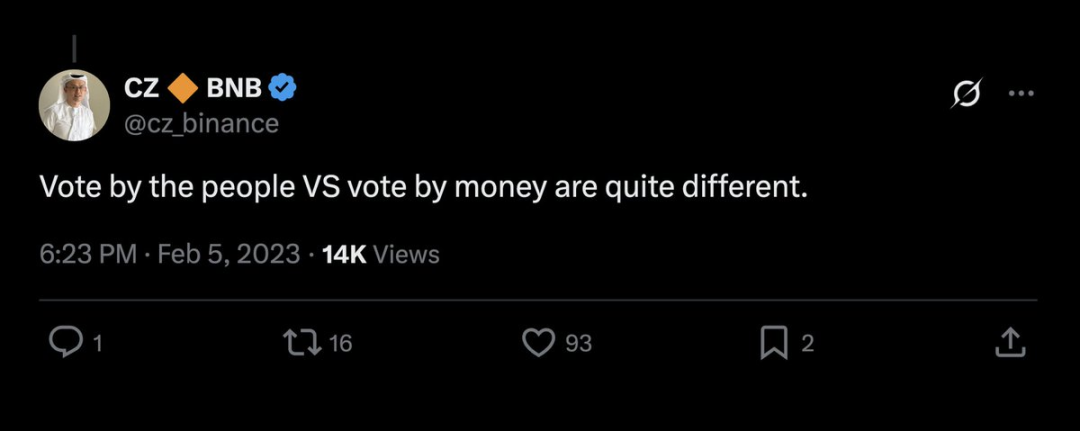
Conclusion
Overall, PancakeSwap's Token Economics 3.0 proposal is highly controversial, but it also reflects the profound contradictions and transformation needs of the current DeFi ecosystem in governance mechanisms. How to balance simplifying mechanisms, reducing complexity, and maintaining long-term incentives has become an urgent problem that the entire blockchain industry needs to address.
免责声明:本文章仅代表作者个人观点,不代表本平台的立场和观点。本文章仅供信息分享,不构成对任何人的任何投资建议。用户与作者之间的任何争议,与本平台无关。如网页中刊载的文章或图片涉及侵权,请提供相关的权利证明和身份证明发送邮件到support@aicoin.com,本平台相关工作人员将会进行核查。




